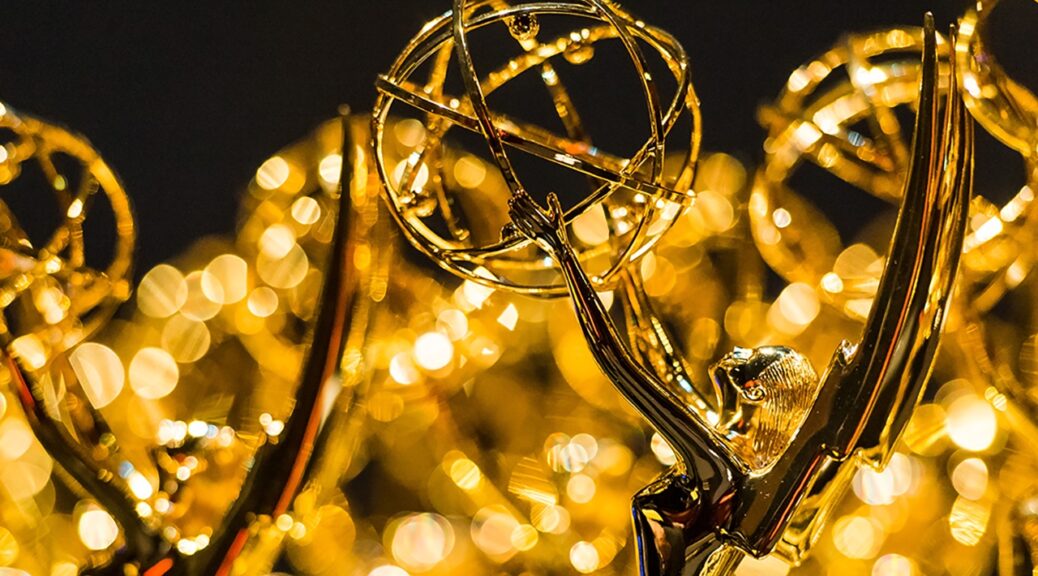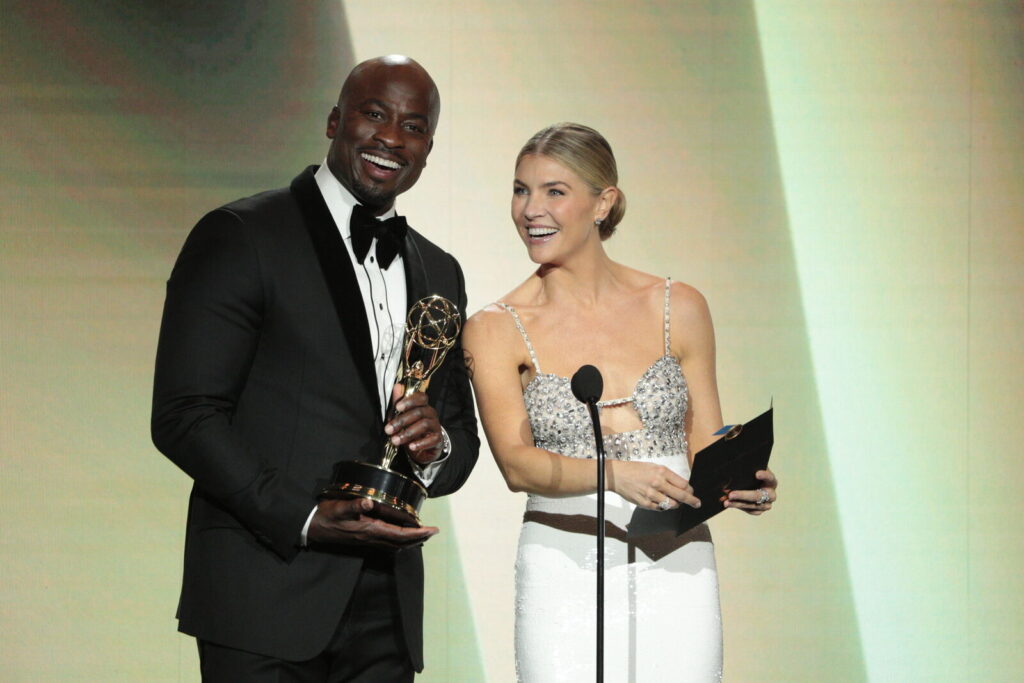
Awards Shows: Bridging The Gap Between Generations of Viewers
Awards show viewership has been on the decline for years, but recent data show that younger generations seem to care more about awards show results despite not tuning in to see the live coverage.
2024’s awards season defied the recent trend of low ratings as a majority of the big-name award shows saw an increase in viewership over the previous year.
This year’s Academy Awards brought in 19.5 million viewers. This is a four-year high, up from 18.8 million in 2023. The 65th Grammys, which took place in February of 2024, drew 12.4 million viewers on CBS, a 30% increase compared to the previous year’s 9.6 million viewers. The January 2024 Grammys became the most watched Grammys since 2020, with 18.7 million viewers. The Golden Globes earned a live audience of over 10 million viewers, its largest audience since 2020 and a 50% increase from the previous year.
Despite these numbers giving hope to the organizations that fund these shows, the issue still stands: younger generations are simply not interested in tuning into the live coverage of awards shows.
Kent State University Professor of Media and Journalism Dr. Kathryn “Kaatie” Cooper cites information efficiency as a main reason as to why younger generations, particularly Gen Z, are not watching live awards shows as often as previous generations.
“Why watch a 3-hour awards show when you can look up the results the next day and read them in a few minutes or watch a short re-cap video on YouTube or TikTok?”
For Dr. Cooper, there are obvious differences in how audiences engage with awards shows now compared to previous decades.
“Oscar watch parties used to be fairly common within my social circles, but I only know of one person who has still had them in the past seven or so years.” She goes on to explain that “viewing the live broadcast of the show is no longer much of a priority” for herself or the people she knows.
“Why watch a 3-hour awards show when you can look up the results the next day and read them in a few minutes or watch a short re-cap video on YouTube or TikTok?”
Dr. Kaatie Cooper
According to Variety, all of the key awards shows’ (The Academy Awards, The Grammys, The Emmys, The Golden Globes) average viewers are over the age of 50. Despite this, the younger generations are actually more likely to care about the results.
Data published by NRG show that 68% of Generation (Gen) Z cares about the Grammys, more than any other age demographic. 64% of Gen Z cares about the Academy Awards and 59% cares about the Emmys.
The data comes from a study conducted on 1,006 US based media consumers between the ages of 18 and 64, conducted online in February of 2024. Participants were measured to be demographically good representatives of the United States based on factors like their age, race and ethnicity.
Data regarding streaming comes from NRG’s always-on streaming audience tracker based on a sample of 3,000 US streaming subscribers between the ages of 13 and 54, with results being taken in February 2024.
Terry O’Reilly, Chairman of The Emmy Awards, believes that one of the reasons behind awards shows’ lack of live viewership, particularly with younger generations, is because of the number of options available for entertainment.
He explained that before the days of streaming, audiences had limited options for what was available on cable television. “We’ve gone from five channels to fifty channels to five hundred channels, to essentially a limitless number of channels with our ability to leverage on-demand and ultimately be able to use the internet to get ahold of any kind of programming that you might want.”
Options like delayed viewing allow for audiences to be able to watch programming wherever they want, whenever they want. Consumers know that clips from awards shows will be uploaded to social media immediately, making it easier for casual viewers to skip out on watching live coverage in favor of a highlight reel.
“Gen Z was born with all of that access–old guys like me had to learn it!” O’Reilly laughed. “When you grow through decades like we have, and your options have expanded, you grow over time in taking advantage of things like delayed viewing.”
Despite data showing that Gen Z cares more about the results of most awards shows than other generations, they are still less likely to tune-in to live coverage overall.
When asked about engaging with the 2024 Academy Awards, consumers who said they cared “a bit” or “a lot” about the Academy Awards shared the different ways in which they planned on engaging with the coverage.
When it came to watching live, only 42% of Gen Z said they were planning on watching live, compared to 67% of Boomers.
Interestingly, Gen Z was the highest percentage in every other category of engagement with the Academy Awards in the data.
These categories include watching clips on social media afterwards (54%), following the ceremony on social media (39%), following actors/nominees on social media (37%) and posting about it on social media (15%).
The main issue networks are having is trying to make sitting through a live awards show more palatable to a younger audience.
The Emmys understands viewing patterns, and O’Reilly ensures that they are committed to fitting their programming to what audiences are currently looking for.
“In the time that I’ve been chair of our academy, we’ve made some pretty dramatic changes in our shows for that very reason. There were things that were attractive two-hour extravaganzas to audiences twenty years ago, that nowadays younger audiences would look at and go ‘God, this just seems so old.'”
“Gen Z was born with all of that access–old guys like me had to learn it!”
Terry O’Reilly
“Our generation watches awards shows for pop culture purposes. What is their favorite celebrity wearing? Who’s performing their new song?” Alexandria Thompson, a senior Digital Media Production major at Kent State University said. “Whatever happens at an award show is likely to be the main topic of conversation for the next few days.”
As the Creative Director for the Female Filmmakers Initiative on Kent’s campus, Thompson keeps up to date on news surrounding the film and entertainment industry.
For many members of Gen Z, including Thompson, awards show season means fun content from popular celebrities, and the opportunity for a new scandal or meme to hit the internet the following morning. For others, however, awards season is meant to be a celebration of all the art created in the previous year.
“Our generation watches awards shows for pop culture purposes. What is their favorite celebrity wearing? Who’s performing their new song?”
Alexandria Thompson
The NRG concluded that 65% of consumers—73% of which are Gen Z—agree that awards shows are important when it comes to celebrating achievements within the entertainment industry. So why, then, is it so hard for this generation to tune in live?
“I think award shows aren’t as palatable because our daily lives are so oversaturated with mainstream media. I feel like older generations watch them to be informed of what’s going on in pop culture, whereas Gen Z is already aware of it,” Thompson explained.
Generally, most agree that the main reason as to why Gen Z is less interested in watching awards shows live is simple: entertainment options are limitless.
“I think it is, in very many ways, just the fact that from the time Gen Z viewers have had the ability to make choices about their viewing, they’ve had more options than any generation before them,” said O’Reilly.
While awards shows still have a long way to go in terms of earning the loyalty of a Gen Z audience, things are certainly headed in the right direction. Once the big-name awards shows start to really gain traction within Gen Z circles, the hope is that audiences will return to viewing awards shows in their entirety.
Industry professionals and audiences alike view awards shows as a way to celebrate all the hard work that goes into the content created by the entertainment industry–the biggest hurdle is trying to remind young people of that fact.
Awards shows may never be the social event they once were for the average American again. Despite that, industry professionals and audiences alike are hopeful that as Gen Z becomes more involved within the industry, the number of young people watching awards coverage live will increase.



